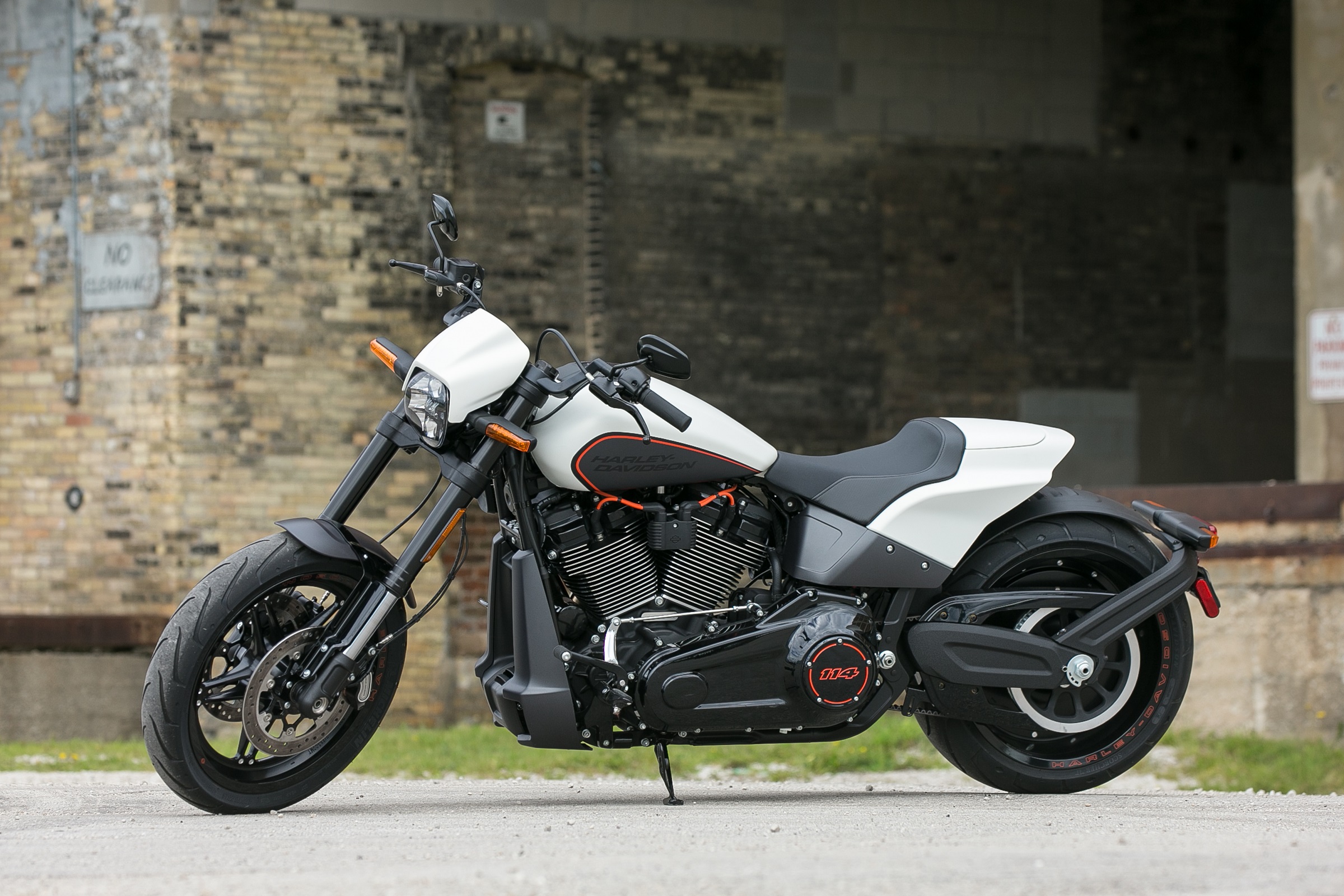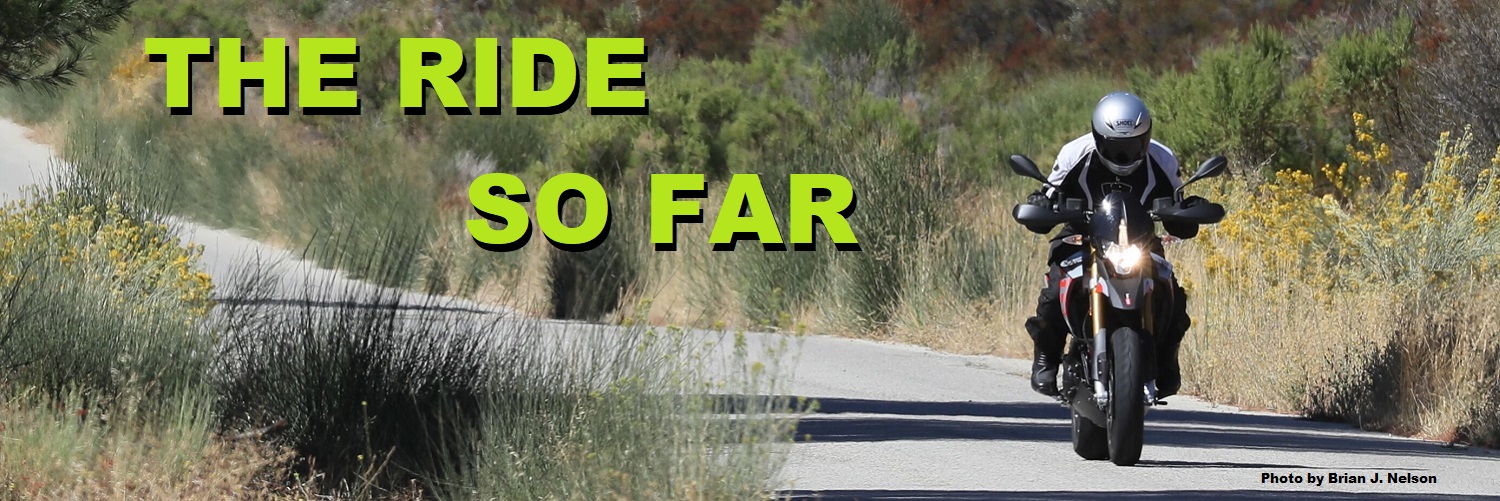
2019 Harley-Davidson FXDR. Who’s it for? Yes, you have to explain. Photo by Kevin Wing.
One of my least favorite sayings in motorcycling is the old faithful hauled out by Harley-Davidson riders: “If I have to explain, you wouldn’t understand.”
Yesterday at RevZilla, we published Chris Force’s first impressions of the 2019 Harley-Davidson FXDR, and part of his story consisted of wondering who would buy this $21,349 motorcycle. I was a little surprised when a Harley exec, a guy I like and respect and who is, in many ways, a lot more accomplished in this business than I’ll ever be, responded by saying, “If I have to explain…”
I realize the FXDR is just a placeholder until Harley comes out with the potentially game-changing new models next year, but resorting to that old “If I have to explain…” saying tells me that the dangerous old thinking, the approach that has driven Harley-Davidson toward a downward spiral that will only get harder to reverse the closer they get to the precipice, is still alive in the halls of the Motor Company.
So what’s wrong with “If I have to explain, you wouldn’t understand”? At the most basic level, it’s an unpleasant combination of smugness and inarticulateness. It’s another way of saying “I know something you don’t know but I don’t know how to share that knowledge with you” or maybe “you’re too unimportant for me to waste my time trying to share it.”
Drilling down to the next level, “If I have to explain, you wouldn’t understand” really means, in many cases, “If I have to explain and be truthful, I’ll have to give you reasons that may make me uncomfortable to admit or open me to ridicule.” If you’re a 55-year-old guy who bought a $20,000 motorcycle due to peer pressure, it may be hard to admit that to anyone outside that circle of friends who view your choice positively.
If someone asks a Harley-Davidson owner why he or she bought an expensive motorcycle that is heavier, slower, handles worse, has poorer brakes and lacks features found on competing bikes at lower prices, some honest answers might include: all my friends have Harleys and I’m afraid they’ll shun or make fun of me if I ride something else; I’m trying to project a certain image; I want to be seen as pro-American by not riding a foreign brand. Some of those may be hard to admit. Some of them will be accepted positively by certain people and ridiculed by others. It’s much easier just to say, “You wouldn’t understand.”
It matters more when the MoCo says it
There’s minimal harm done when Harley riders use that slightly condescending statement, but there’s real danger in the fact that such thinking still persists in the company’s headquarters.
Harley-Davidson very desperately needs to explain, if it wants to retain its dominant position in the U.S. motorcycle industry. First of all, any business, especially one selling a very expensive discretionary item, has to convince customers that their dollars should go toward that instead of a new iPhone or some other glittery attraction (of which there are more today than ever).
The smug “If I have to explain…” attitude reminds me of the Harley boom years, when Baby Boomers were becoming empty nesters and money was easy thanks to the housing bubble. Back then, at many Harley dealerships you would walk in, express interest, and a sullen sales person would tell you to get on a waiting list. Those times are gone. Boomers aren’t buying many more new motorcycles and while the name on the tank was enough to sell a Harley to some buyers in some times, today’s young consumers may see the brand as a reason not to buy. Harley-Davidson very much needs to explain to Millennials and others in the next generation of riders why they should buy what they see as overpriced, underperforming motorcycles mainly ridden around slowly in packs by old, overweight white guys.
To cite one example, let’s assume Harley-Davidson comes out with some great, competitive products in the new line of lightweight electric motorcycles and bicycles it has in the works. For the target audience, will the Harley-Davidson logo be an asset or a liability? The company is used to its logo helping it sell products, but I’m not so sure that’s universally true any more.
Bottom line, for Harley-Davidson to stay on top in the United States and continue its international expansion, it’s going to take a lot of explaining. And Harley-Davidson better hope it does that explaining well and achieves a lot of understanding.

Well, you know me, Lance, and what I own. Back in the middle 80s, I bought my first HD after having ridden quite a few others, and all I can say is, back then, the ergo’s just fit me better than anything else out there. AND, I liked the fact that the bike was infinitely rebuild-able, as opposed to so many other manufacturers that had people saying, “throw it away, get another.” You actually hit on a few other reasons, like American made, for me anyway. So, back then, while many riders were riding on faster, better performing, oil tight machines, the saying “if I have to explain” made sense–they just weren’t going to get it. These days–not so much. I tend to agree that the statement just doesn’t hold up, especially if they are going to take on the world market on a level playing field where bikes in fact do “feel” right ergonomically, are all pretty much reliable, and sadly, because this is where HD went, are all now disposable because you can’t rebuild them as easily. I’m just giving you a bit more background to where the expression came from, not why the MoCo would be using it today.
An addendum.
Also, back then, if I had tried to explain, as I did just now, an argument would ensue with eventual name calling and other un-pleasantries. To avoid conflict, it was just easier to use the phrase.
The likelihood of arguments, name-calling and unpleasantries has only increased in our society in recent times — far more so, I believe, in general society than in the smaller motorcycle circles. I don’t know, maybe it’s just me being optimistic for a big change from the norm, but it seems to me the divisions among motorcyclists, though obviously still there, are actually less deep than they used to be.
Your optimism, I believe, is well founded. Back in the 80s, there was real violence over the brand of bike you rode–I saw it and was actually physically removed from a bar because I was on a Honda. My buddy, Mike, had a beer bottle broken on his tank. I just don’t see that today, anywhere. The Key West Poker run is this weekend, and I can say from years past all riders, no matter what they ride, are very welcoming these days. Sure, a little bit of ribbing still goes on–as one would expect–but nothing like the past.
Things got irrational in a lot of ways in the 1980s, in reference to Japan. There was real fear among some sectors of U.S. society that Japan was going to take over the world and buy up the entire United States. Remember, they had more of a housing bubble than this country has ever seen. Recall that at one point the grounds of the Tokyo Imperial Palace was supposedly worth more than the entire state of California. The irrationality and fear, with some racism thrown in, led to the public spectacles of Japanese bikes being burned at motorcycle rallies and the like.
Now, Japan looks more like a hollow shell of an economy, living on fake wealth and borrowed time as its central bank prints money as fast as possible to try to prop up a standard of living that may be impossible to sustain. If there’s any fear about Japan now, it’s a fear that it could be the big domino that falls and takes down the world economy.
Young people today are not going to be sold with a line like that. Harley should be cleaning up, with all the hipsters and young people buying café racers and then scramblers and other throwback bikes. Harley could have dived into that market and owned it, but instead they let Triumph and Ducati and even the Japanese manufacturers beat them to it.